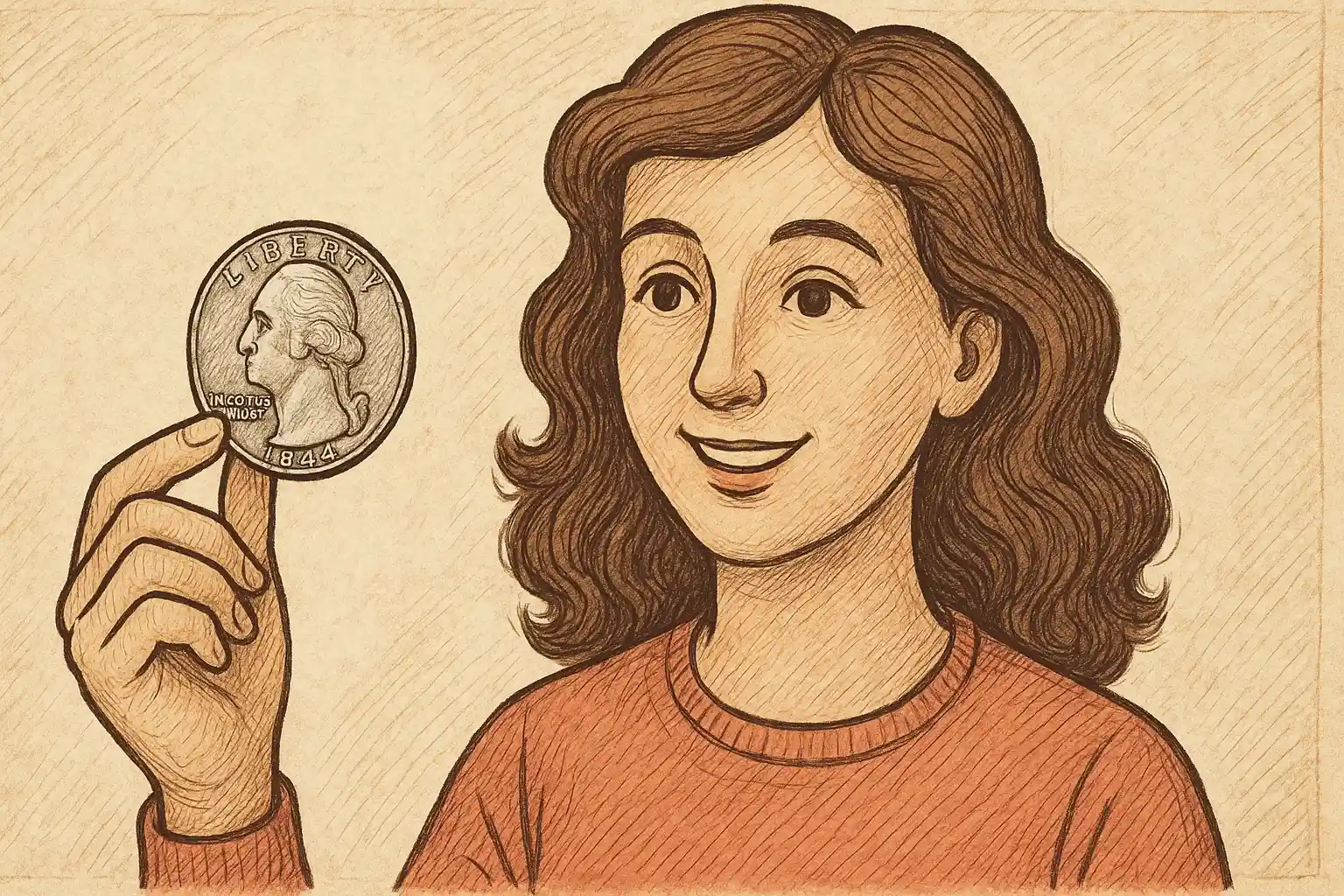Sometimes the meaning is concealed in the most unexpected places – like in a rare collectible American Eagle silver coin. At first glance, it’s just a silver circle, but inside lies history, symbolism and even investment value. Similarly with work: what looks like a chore is not always empty. And what we think is just a hobby can become a lifelong endeavor.
So today we would like to talk about how to find a job to your liking – not necessarily to change your profession, but perhaps to discover the creator, collector, craftsman, curator of beautiful stories. The path to meaning can start with a coin collection, old furniture, a notebook of ideas, or simply a desire to do something with your hands. We will share tips, stories, and tools – and maybe you will take the first step toward a new life and your inner freedom.
Start with Self-Awareness: What Genuinely Moves You?
Before purpose becomes a profession, it must become personal. Self-awareness is your compass.
Ask yourself: what activities make me feel alive, not drained? When do I lose track of time in the best way? What do I love learning about (even when no one’s watching)?
These answers don’t come from career quizzes alone – though tools like the Enneagram, CliftonStrengths, or MBTI can be your useful starting points. Even more valuable option? Journaling. So, try writing for five minutes a day about when you feel most like “yourself.” Or reflect on questions like:
- What did I love doing as a child before I worried about money?
- What kind of problems do I like solving?
- What can I do if no one judges me for it?
Lifehack: Use your phone’s notes app to track “flow moments” – times when you are totally focused and content, as these moments are clues.
Surprisingly, according to a 2023 Gallup study, more than half of professionals feel unsettled at work, but people who do meaningful things on the side report 40% higher overall well-being. That’s the green light: meaningfulness often lives outside the traditional office.
When Small Joys Grow into Life-Changing Projects
We often underestimate the power of small joys. Yet many fulfilling careers begin with nothing more than curiosity.
For example, take Clara, a graphic designer who spent weekends making candles for fun. After sharing a few on Instagram, orders started pouring in. Now she runs a full-time eco candle studio with a waitlist. Or Leo, who started painting secondhand furniture during lockdown and now sells hand-restored vintage pieces on Etsy.
Here is why hobbies matter:
- They’re low-pressure playgrounds for creativity and skill-building.
- They build confidence through small wins.
- Due to them you can find new people that share your passion – and may become your future clients or collaborators.
Even something as niche as coin collecting can become meaningful. Many people begin collecting as a quiet pastime, then start identifying rare finds, trading stories, and eventually setting up shop online.
Tip: Do not dismiss your weekend activities. If it brings you joy and curiosity, that is reason enough to nurture it. Meaning doesn’t demand immediate productivity – it will grow through attention and time.

Hobbies with Potential: From Personal Collections to Passion-Fueled Shops
The Quiet Spark of Collecting: Where Stories Begin
Sometimes, purpose begins with a simple fascination – like the weight of a vintage object in your palm, the mystery of where it came from, or the satisfaction of preserving something that others overlook. That’s the quiet magic of collecting.
Coin collecting, in particular, is a deeply personal yet surprisingly social hobby. It often starts with a single piece – say, a coin picked up at a flea market or inherited from a grandparent – and grows into a journey of discovery. Each coin carries not just monetary value, but history, culture, and emotion. Thus, it is no wonder collectors often speak of their finds as riches.
And today, you can start with it easily due to modern tools and solutions, for example Coin ID Scanner app. Want to know if the coin you picked up at a flea market is valuable? Well, all you need is just use the Coin ID Scanner that can help you identify and describe a coin in seconds – just take a photo and learn its background: year and the country of origin, design characteristics, its grade and even approximate market value. It’s a small tool that often leads to big discoveries.
Old Made New: The Art of Upcycling and Restoration
Another joyful path to meaningful work is restoration – a slow, satisfying process where you take something worn and forgotten and give it a second life. The recycling process combines creativity and sustainability, and right now this combination is more relevant than ever.
Let’s say you found an old wooden chair at a flea market. A little sanding, paint and fabric and it becomes a bold accent piece again. Or take a broken clock – what if it became a wall sculpture or a whimsical photo frame? Due to restoration our hands can solve puzzles and your mind can turn forgotten objects into something useful and beautiful.
It’s not just a personal pleasure – it’s a growing economic niche. Thus, in Europe alone, the secondhand and upcycling market has grown by more than 20% since 2020, thanks to eco-conscious shoppers and lovers of originality. And further selling of restored things on Facebook Marketplace, Vinted or in vintage boutiques can bring both profit and pride.
Tip: Start with small items such as trays, lamps or stools. Practice techniques such as chalk painting or decoupage and don’t worry about perfection. Unique charm always beats mass production.
Selling with Soul: Marketplaces That Love Your Passion
You’ve poured time into your creations – now what? Due to platforms like Etsy, Depop, and Instagram Shops, your work can find an audience far beyond your neighborhood.
These platforms are like big communities: shoppers here value items with a story, e.g., a hand-sewn apron inspired by your grandmother, a restored radio that still hums 1970s tunes, or even a framed coin display celebrating historical milestones.
In fact, on Etsy, over 60% of buyers say they’re looking for items they can’t find anywhere else. That is where your work comes in. You don’t need to be a marketing genius to begin. All you need is a few well-lit photos, a short description of your process, and a sincere tone that are often enough to get noticed. And as your confidence grows, so will your audience.

Still Searching? That’s Okay
It’s natural to feel like you’re falling behind when everyone around you seems to have their careers and life paths figured out. You may worry that you don’t have enough time, or wonder if you will ever find that one activity that will ignite the passion in you. The truth is, it is perfectly fine if you still haven’t figured it all out yet. Many successful people didn’t discover their true calling until later in life, and that’s something to embrace.
Here are some examples to inspire you:
- Vera Wang didn’t create her first wedding dress until she was 40. She had a completely different career before finding her passion in fashion design.
- Stan Lee, the creator of Marvel superheroes, began creating his iconic characters at age 40 after years of struggling in the comic book industry.
Tip: If you are still searching for your calling, focus on small steps. Try out different things without the pressure of needing them to become a full-time career right away. Explore new hobbies, volunteer, take a class, or even start a side project on weekends. You never know where these experiences will lead, and every tiny bit of exploration brings you closer to understanding what truly excites you. Remember: the way of self-discovery is just as important as the destination.
Your Story Has Already Begun
It is not always easy to find your place, but every step in the search for meaning is a step forward. Sometimes all it takes is a simple start to get started. The path to your business can start small – and perhaps that very moment is already ahead of you. The main thing is to keep going and go where you are interested.


